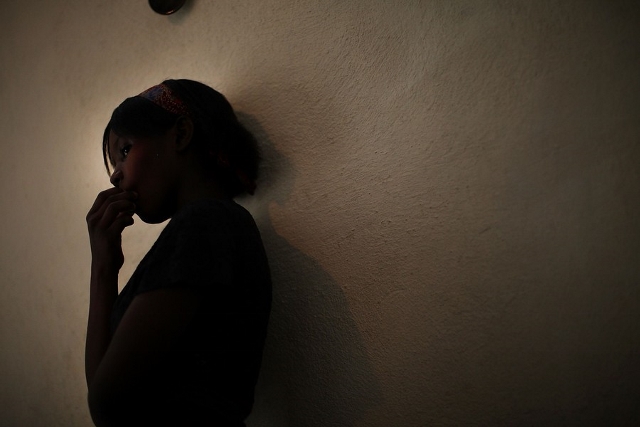 A domestic violence community meeting co-sponsored by the City of Roanoke and TAP, and hosted by city councilman Sherman Lea, was inspired in part by sobering statistics put forth by the Salvation Army of Roanoke, said Director of Development Suzanne Gandy. The domestic violence community meeting is scheduled for Monday, Sept. 19, from 6-8 pm at the Roanoke Civic Center events hall.
A domestic violence community meeting co-sponsored by the City of Roanoke and TAP, and hosted by city councilman Sherman Lea, was inspired in part by sobering statistics put forth by the Salvation Army of Roanoke, said Director of Development Suzanne Gandy. The domestic violence community meeting is scheduled for Monday, Sept. 19, from 6-8 pm at the Roanoke Civic Center events hall.
Lea, alarmed by a recent spate of murder-suicides and other domestic violence incidents, hopes to start a community dialogue about the issue. It’s entitled “Strengthening Families: A Community Conversation about Family and Intimate Partner Violence.” A story the Salvation Army did with WDBJ-7 on domestic violence – where it was pointed out that Southwest Virginia is number one in the state for domestic violence related murder-suicides, topping even more populous areas – piqued the interest of Roanoke City Police and Lea.
Gandy said the Salvation Army grapples with issues like poverty and domestic violence every day, through shelter it provides and the goods it offers. Those in poverty are three times more likely to be involved in a domestic violence situation, according to statistics cited on the local Salvation Army website (virginiasalvationarmy.org/Roanoke).
The Roanoke Salvation Army offers its Turning Point shelter as a haven for adults and children that have experienced domestic violence. “The Turning Point is the only place, if you are running for your life from domestic violence…in the Roanoke Valley that you can be secure,” said Gandy. A friend of hers was recently killed in Salem as part of a murder-suicide involving an estranged husband. Some people are even relocated by the Salvation Army outside of the Roanoke Valley after suffering domestic abuse.
“We help these adults and children rebuild their lives,” said Gandy of Turning Point. The location is not disclosed for safety reasons. Most stay for 30-45 days but the Salvation Army will not turn people out as they rebuild their lives.
There is no charge for staying at Turning Point. The shelter has a 24-hour confidential hotline (345-0400) and offers services like court advocacy, case management, support groups and crisis transportation. The Salvation Army also gets involved with disaster relief and has a family emergency services program, which can offer one-time help to pay certain bills.
The Salvation Army urges people to “break the cycle of violence,” if they have to flee due to domestic abuse issues: have an escape plan, put extra money aside for such a day, keep extra house and car keys in a safe place, pack a suitcase with necessities just in case, and confide in a friend or relative; and call the hotline number 24/7 at 345-0400 when it is time.
Victims are encouraged to call 911 to file a complaint after an incident and leave immediately afterwards for a safe place, taking medications, bank books, etc. Gandy notes that the majority of people return – mostly women – after an incident of domestic violence. Sometimes things don’t get better and in some cases turn extremely violent or even fatal.
Funded in large part by the United Way as well as private donations and special fund raising events like “Dancing with the Valley Stars”, the Salvation Army also gets by on donations made during the holiday season to those ubiquitous red kettles. “That is crucial to our operations year round,” said Gandy, “and it’s a symbol of the Salvation Army. Even the change people put in makes a difference.”
1 in 3 women and 1 in 7 men will experience domestic violence, according to the Salvation Army website. “It’s a huge [problem],” said Gandy. The community forum on September 19 can only help shed light on the problem. “People need help in so many ways and the Salvation Army is known for helping the last, the least and the lost,” Gandy added.
By Gene Marrano

